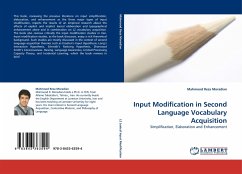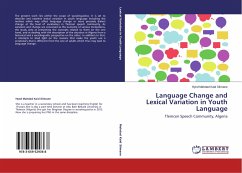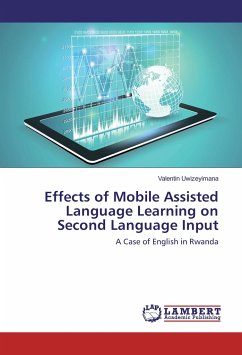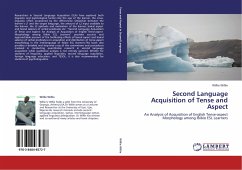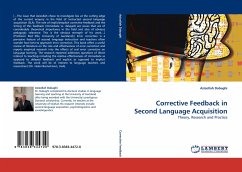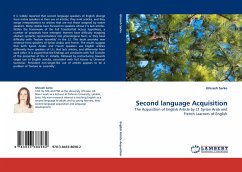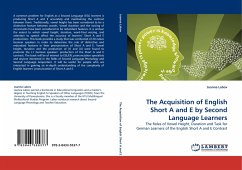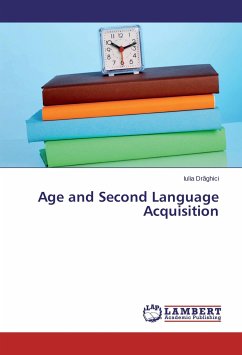
Age and Second Language Acquisition
Versandkostenfrei!
Versandfertig in 6-10 Tagen
24,99 €
inkl. MwSt.

PAYBACK Punkte
12 °P sammeln!
We usually acquire our mother tongue with great ease, but fewer of us manage to learn a second language so well that we can pass for native speakers. Moreover, while there is very little variation in final competence in L1, which is assumed to be uniform (at least in the domain of syntax), people vary widely in the extent to which they acquire an L2. Therefore, the learning of a second language represents a fascinating and complex phenomenon whose course and final results are determined by an number of interacting factors, the age of the learner being one of them. The book briefly reviews a nu...
We usually acquire our mother tongue with great ease, but fewer of us manage to learn a second language so well that we can pass for native speakers. Moreover, while there is very little variation in final competence in L1, which is assumed to be uniform (at least in the domain of syntax), people vary widely in the extent to which they acquire an L2. Therefore, the learning of a second language represents a fascinating and complex phenomenon whose course and final results are determined by an number of interacting factors, the age of the learner being one of them. The book briefly reviews a number of theoretical interpretations of the relationship between age and second language learning as well as some of the empirical studies illustrating these theoretical claims.



